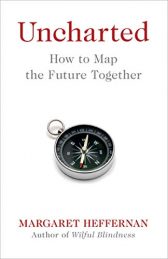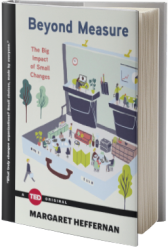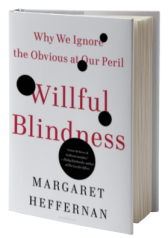Willful Blindness
The biggest mistakes we make in life and work aren’t caused by total unknowns but by information we could have and should have but somehow manage not to have. The law calls this willful blindness because we had an opportunity for knowledge which was shirked. Examples are all...
The biggest mistakes we make in life and work aren’t caused by total unknowns but by information we could have and should have but somehow manage not to have. The law calls this willful blindness because we had an opportunity for knowledge which was shirked. Examples are all around us: the banking crash, Deepwater Horizon, VW emissions, Wells Fargo, Boeing.
How does this happen? But there are also examples of willful blindness in which great opportunities for innovation were missed: how did Google miss social networking? Why didn’t hotels take Airbnb seriously? Examples abound. So what are the forces at work, in us and in corporate cultures, that allow willful blindness to flourish – and what can we do to minimize it.
Using a wide array of real life examples, Margaret Heffernan dissects the causes of this ubiquitous phenomenon and identifies how we can all see better.
Willful Blindness: How we ignore the obvious at our peril was shortlisted for the FT Best Business Book award and was described as “one of the most important books of the decade.” Dr Heffernan has talked about this work to organizations as diverse as
healthcare, financial services, schools, government bodies, pychologists, engineers and designers.


